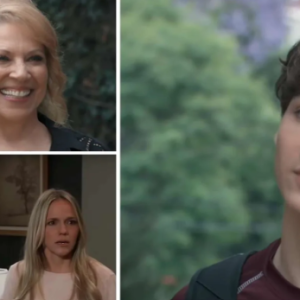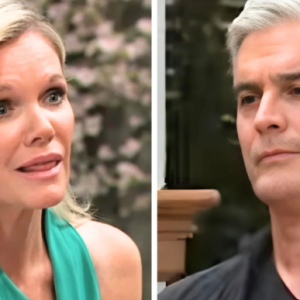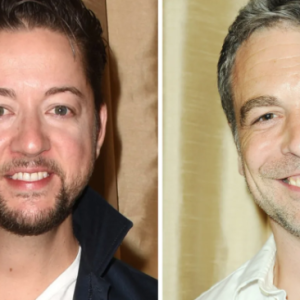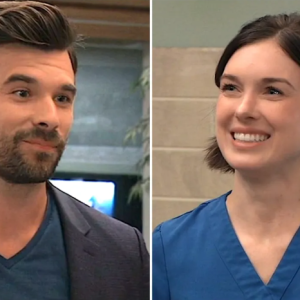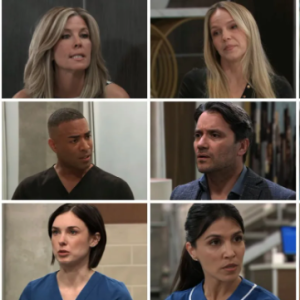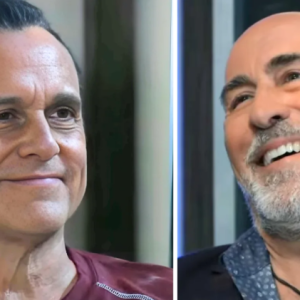Prepare for an intensely raw and emotionally charged confrontation that will redefine one of Port Charles’s most fractured relationships in General Hospital: The Reckoning! The film plunges into the tumultuous lives of Willow Tait (Katelyn MacMullen) and her biological mother, Nina Reeves (Cynthia Watros), chronicling Nina’s desperate, often heartbreaking, attempts to forge a connection with a daughter who initially wanted “nothing to do with her.” This deeply personal journey culminates in a devastating betrayal, a public downfall for Willow, and a powerful call for Nina to finally stand up for herself against a lifetime of perceived slights and unmerited blame.

The Tortured Path to a Daughter’s Acceptance
The movie opens by painting a stark picture of the initial chasm between Willow and Nina. When Willow first discovered Nina was her long-lost mother, her reaction was immediate and absolute rejection. Fueled by her unwavering loyalty to Michael Corinthos (Rory Gibson), who “hated Nina for having an affair with Sonny (Maurice Benard) in Nixon Falls,” Willow “jumped right on the bandwagon.” This deep-seated resentment led her to refuse any relationship with Nina, going so far as to cruelly deny Nina access to her own grandchildren. The narrative acknowledges that “Nina may have deserved some of that,” for her past actions, but unequivocally states that “the punishment was quite harsh,” highlighting the disproportionate severity of Willow’s retribution.
Despite the cold shoulder, Nina’s determination to connect with her daughter never wavered. The film then details the pivotal turning point that initially began to thaw Willow’s icy demeanor: Nina’s unwavering support during Willow’s affair with Drew Cain (Cameron Mathison). When “most of Port Charles was against her,” Nina stepped up, demonstrating unconditional love and loyalty by actively “defend[ing] her daughter.” This act of selfless devotion finally broke through Willow’s defenses. “Suddenly, Willow had a change of heart and let her mother into her life.” This newfound, albeit fragile, connection blossomed, and “The two even became close.”
However, the foundation of this reconciliation was inherently precarious. The movie explicitly reveals that this relationship was “always on Willow’s terms.” Nina, desperate for any shred of connection, “did everything Willow wanted just to maintain a relationship and be allowed into Willow’s life.” This dynamic left Nina in a constant state of anxiety, perpetually “walking on eggshells.” She knew, with agonizing clarity, that “One wrong move would send Willow out the door,” a sword of Damocles hanging over every interaction, every decision. This desperate appeasement created an imbalanced relationship where Nina’s love was constantly put to the test by Willow’s conditional acceptance.

The Secret Revealed: A Devastating Betrayal
The fragile peace between mother and daughter shatters with a single, devastating revelation that forms the emotional climax of this arc. Despite Nina’s meticulous efforts to avoid any misstep, “she made a very wrong move when she kept her relationship with Drew a secret.” This act of omission, born perhaps from fear of losing Willow, proved to be the ultimate undoing. The narrative poignantly highlights the tragic irony: “It would have saved a lot of heartache if Willow had known the truth from the beginning.” But the truth, when it finally emerged, exploded with catastrophic force. “Now she knows, and of course, went on a rampage.” This explosion signifies the complete breakdown of the trust Nina had so painstakingly tried to build, sending their relationship back into the emotional abyss, possibly even deeper than before.
The movie then takes a critical look at the aftermath, where the blame is squarely placed on Nina by Willow, yet the narrative suggests a different truth. While “Nina once again made a big mistake,” the film argues that “the hatred and blame that Willow put on her mother was too much.” This pivotal moment challenges the audience’s perception of Willow’s victimhood, suggesting that her extreme reaction is disproportionate. The narrative asserts that Willow’s “poor choices and Drew worship were not her mother’s fault.” This highlights Willow’s own agency and accountability for her actions, shifting the blame from Nina to Willow herself.
The film dramatically underscores Willow’s self-inflicted downfall: “Nina did not destroy her life; Willow did that to herself.” This powerful statement serves as a harsh indictment of Willow’s prior decisions and her blind loyalty to Drew. It’s revealed that “All of Port Charles tried to warn her, but she was too busy listening to her lying boyfriend.” This crucial detail emphasizes Willow’s tunnel vision and her deliberate choice to ignore sound advice from those who truly cared about her. The ultimate consequence of her choices is stark and tragic: “Willow lost her children all on her own.” This devastating outcome is a direct result of her poor judgment and her inability to see beyond her own desires, rather than a consequence of Nina’s actions.
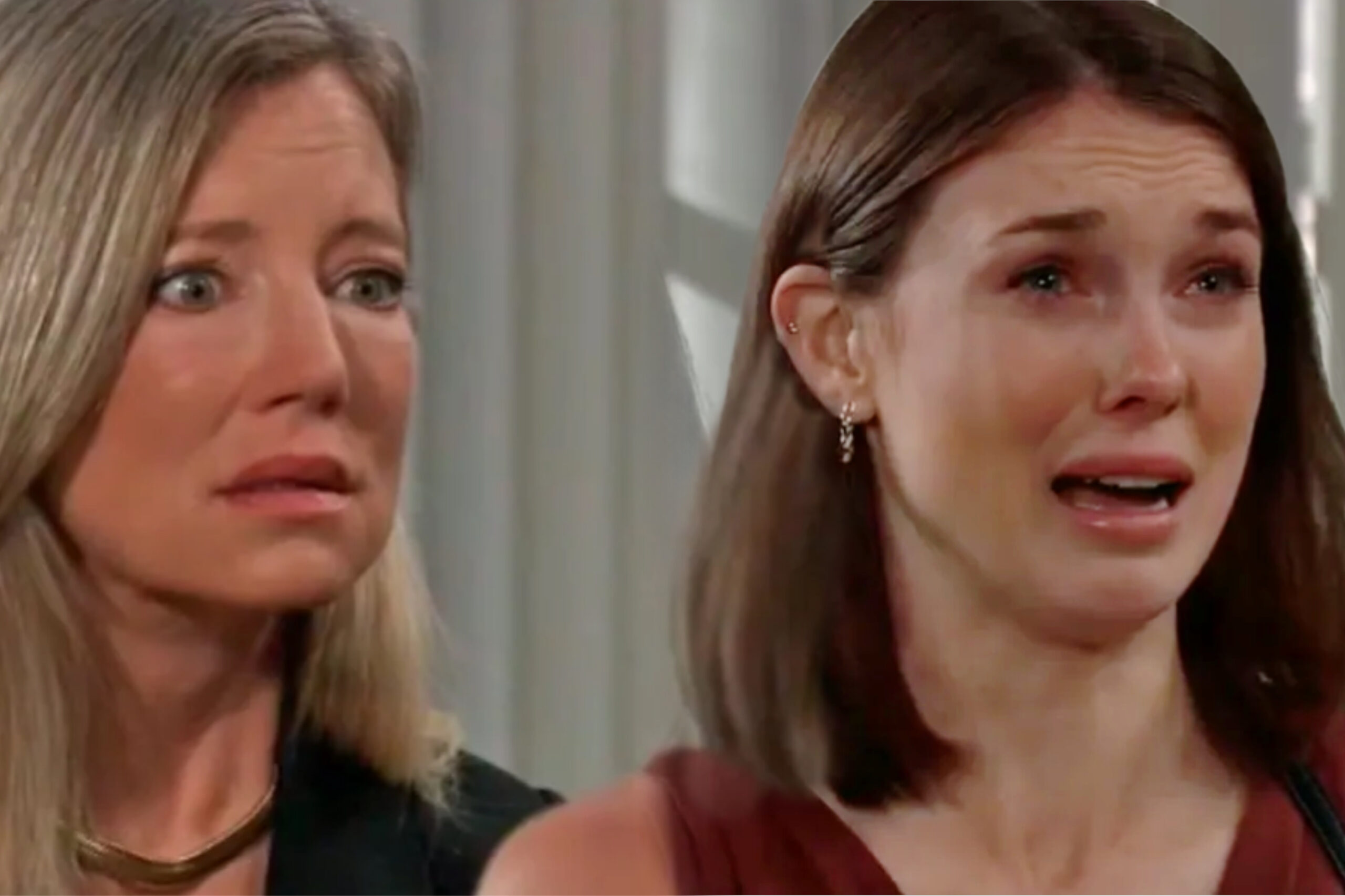
Nina’s Reckoning: The Call to Fight Back
In the wake of Willow’s self-destruction, the movie posits a profound shift in the dynamic between mother and daughter. It’s suggested that “It might be time for Nina to fight back and stand up for herself.” After years of enduring Willow’s harsh judgments and walking on eggshells, the narrative calls for Nina to finally reclaim her dignity. While her desire for a relationship with her daughter is “understandable,” the film argues that “she doesn’t need to be a punching bag to do it.” This marks a critical turning point for Nina’s character, urging her towards empowerment rather than endless capitulation.
The proposed path forward for Nina is radical: “Nina should let Willow try to get out of the mess that she made of her life without her mother’s help.” This tough love approach suggests a necessary emotional detachment, allowing Willow to face the full consequences of her actions without Nina constantly swooping in to mitigate the damage. The ultimate hope is that this painful experience will force Willow to confront a vital truth: she “must realize who has been there to support her unconditionally during all this turmoil that she created.” This powerful realization is presented as the only way for Willow to truly appreciate the depth of Nina’s love and the extent of her sacrifices. The movie leaves the audience on a tantalizing cliffhanger, posing the crucial question: “What do you think? Is it time for Nina to draw the line?” This powerful query sets the stage for Nina’s potential transformation from a long-suffering mother to a woman who finally chooses self-respect over endless martyrdom.
General Hospital: The Reckoning offers a searing examination of a mother’s unconditional love tested to its absolute breaking point. It’s a story of devastating secrets, misplaced blame, and the desperate struggle for acceptance. The film bravely questions the nature of forgiveness and accountability, hinting at a powerful shift where Nina, long the recipient of Willow’s harsh judgments, may finally rise to reclaim her own voice and dignity, leaving the future of their fractured relationship hanging precariously in the balance.
